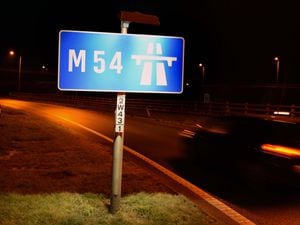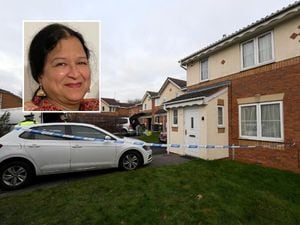Illegal traveller camps: a destructive and costly game of cat and mouse
It happened quickly and without fuss.
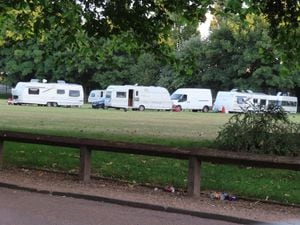
A barrier was snapped off, and in less than a minute a convoy of 14 vehicles and caravans entered the car park of a large business on the outskirts of the Black Country.
Moments later one of the travellers had climbed a ladder and ripped a security camera clean off the wall.
This was followed swiftly by another member of the group using bolt cutters to break into the plant. The door of the substation was smashed and the kill switch was hit, cutting the site’s power.
An apparent attempt to steal copper from the site proved futile – the building was in the process of being sold and the plunder had already been safely removed.
Police arrived at the scene, enabling the firm’s security officer to restore power and get some of the CCTV cameras back up and running. The images caught featured, among other things, young children speeding around on quad bikes, and a man turning up with garden furniture and a barbecue, seemingly preparing for a party.
With the police declaring an intent to allow the group to remain at the site over the weekend, the firm called in bailiffs, which led to the travellers moving on after being given a two-hour ultimatum.

Despite leaving a trail of destruction behind them over a 24-hour period no arrests were made, and the following day the same firm of bailiffs was tasked with moving the same group of travellers on from Halesowen Business Park.
A spokesperson for West Mercia Police said an investigation into criminal damage was ongoing, but the reality is the group is likely to be long gone by now.
Such lawless behaviour has been an all too common sight this summer, with illegal camps popping up with alarming regularity around the Black Country and Staffordshire.
A few days later in Wolverhampton travellers’ caravans and numerous cars and vans set up an unauthorised encampment on the football pitches at the city’s East Park.
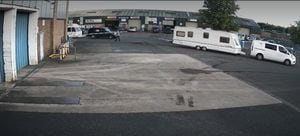
After telling the council they planned to leave the following day, eight caravans remained, leading bosses to call in bailiffs. They finally left the site three days later after being served an enforcement notice.
In Lichfield council chiefs spent weeks involved in a game of cat and mouse with groups of travellers.
A court order was sought after an illegal camp was set up on Boley Park on July 14, but no sooner had they been moved on another group set up on land on the other side of the road. A week later a further incursion took place at Beacon Park after an entrance gate was damaged.

Lichfield Council said while immediate action had been taken in the form of eviction notices, the required approval from a magistrates court can take days to come through.
Meanwhile another group of traveller set up camp at Wednesbury Retail Park after being moved on from a business park in Cannock.
The role of police forces in dealing with illegal camps has been called into question on more than one occasion.
Last year in Dudley West Midlands Police sparked the ire of council chiefs after refusing to move on a group that had stayed at the Budden Road transit site in Coseley beyond the permitted 28 days.
A police commander said she was concerned about the group’s human rights, a move Dudley Council said breached a protocol previously agreed with the force.
West Mercia Police said the responsibility for dealing with illegal camps lies with local councils, with officers only called in to support the enforcement of eviction notices.
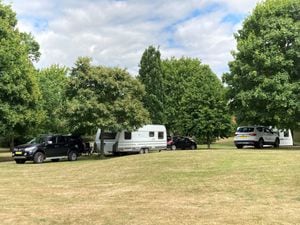
Simon Foster, the West Midlands Police and Crime Commissioner (PCC), said he expected officers to “enforce the law” over unauthorised encampments. He told the Express & Star: “We all have to act in accordance with the law. If people engage in criminal activity, then I expect the police to take effective action to enforce the law. That applies to everyone, including members of the traveller community, whether in relation to unauthorised encampments or otherwise.”
He also stressed the need for councils to ensure they provide enough transit sites – another issue which has caused controversy across the region in recent years.
“It is important that councils comply with their existing obligation to provide enough transit sites,” the PCC said. “This helps to reduce the number of unauthorised encampments, reduce enforcement costs for councils, assists councils and local police in re-directing travellers from unauthorised encampments and therefore enhance community cohesion between the settled community and travellers.”
Each of the four Black Country authorities runs a transit site, which allow travellers to stay for a set period of time for a fee.
Bosses insist they help to drastically reduce clean up costs from illegal camps, which in Wolverhampton was estimated to be around £300,000-a-year.
However, usage rates vary greatly between each of the sites.
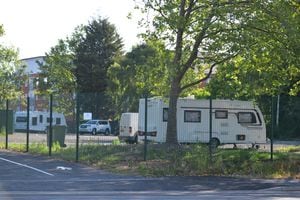
Wolverhampton’s site on Gorsebrook Road opened almost a year ago after a long-running campaign against it by residents, many of whom were concerned about rising crime rates and the destruction of a green space.
It was initially budgeted at almost £1 million – although council chiefs say the final figure was less – and has never been used.
Sandwell Council has the longest running transit site in the region at Boulton Road, Smethwick, which opened in 2017. It was last used in October.
Meanwhile Walsall’s £590,000 transit site in Pleck – which was also the subject of a campaign against it – has been fully occupied since it opened in June, according to council chiefs.
The authority’s leader Mike Bird has dubbed it a “major success” and said the fact that it was being used “justified” the council’s decision to build it.
Dudley Council leader Patrick Harley says the authority’s transit site at Budden Road in Coseley had been successful in addressing the problem by reducing the number of illegal camps in the borough.
The site is regularly used, according to the authority, with 37 licences issued over the past year at a cost of £80 per caravan per week.
Councillor Harley said: “When we opened it we were told it would never get used – as has happened in some areas – but in actual fact it is used quite a lot.


